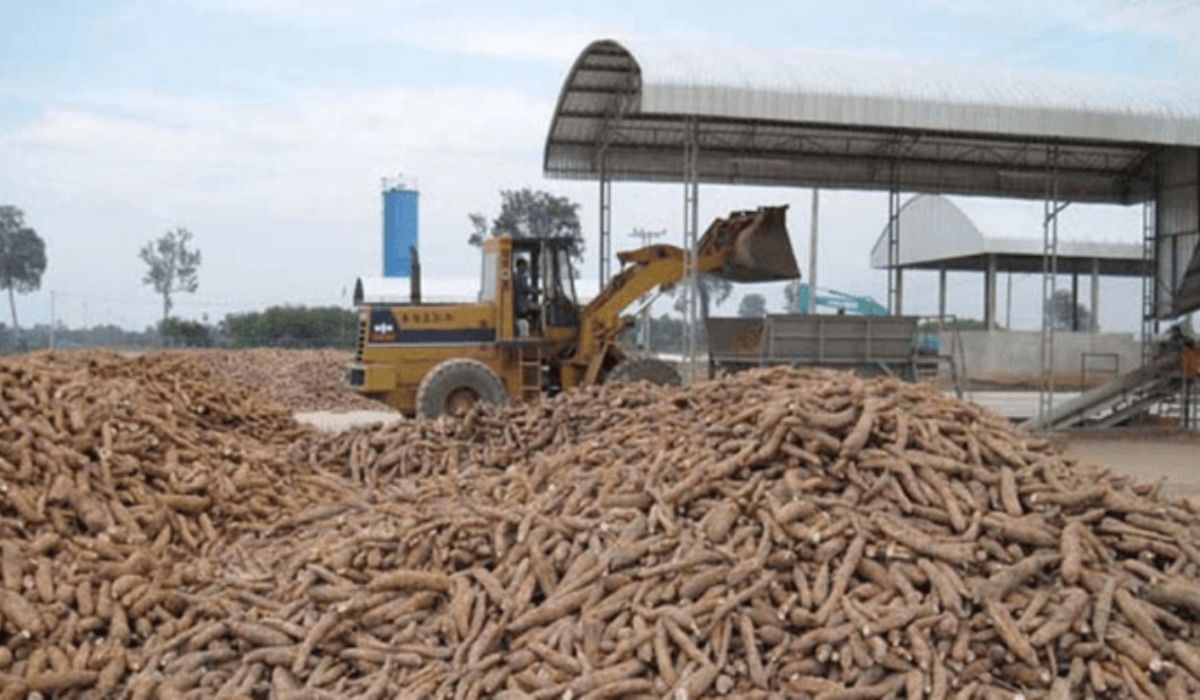Nigeria Leads in Cassava Production but Lags in Global Processing Market

Despite being the world’s largest cassava producer and accounting for 20% of global output, Nigeria holds a mere 2% share of the global cassava processing market.
This gap highlights the country’s persistent struggle to transform raw cassava into industrial-grade by-products such as ethanol, starch, and flour.
Many local industries continue to rely on imports for these inputs due to inconsistencies in quality from domestic producers, an issue that puts pressure on the country’s foreign exchange reserves.
“Nigeria is uniquely positioned to emerge as a global powerhouse in industrial cassava production,” said Olayinka David-West, a professor and dean at Lagos Business School, Pan-Atlantic University.
She cited the country’s underutilized cassava processing capacity as a missed opportunity for investors seeking to benefit from the abundant raw material base.
“This significant gap underscores the remarkable investment potential for companies ready to leverage Nigeria’s inherent advantages and spearhead the expansion of industrial-scale cassava processing,” she added.
The Food and Agriculture Organization reported that Nigeria produced 62.7 million metric tons of cassava in 2023.
The country’s competitive edge is supported by centuries-old cultivation practices, deep-rooted knowledge among rural communities, and widespread cassava farming.
“This long-standing tradition underscores the nation’s readiness to scale and industrialize cassava farming,” said Olayinka Majekodunmi, a partner at Boston Consulting Group.
Majekodunmi pointed out that around 14 million smallholder farmers—roughly 46% of farming households—are engaged in cassava cultivation, providing a solid foundation for expanding industrial processing.
Existing transport, processing, and distribution infrastructure further strengthens Nigeria’s position for investment in the cassava value chain. The crop covers about 30% of the country’s total cultivated land, and its adaptability across all ecological zones ensures a steady supply throughout the year.
In terms of research and innovation, major global foundations have played a key role.
“Organisations like the Gates Foundation have actively supported research and development, seed systems, and mechanization advancements—significantly bolstering productivity potential and yield improvements,” Majekodunmi said.
However, challenges remain. David-West identified poor yields and low industrial utilization as key bottlenecks. The nation averages just 6 tons per hectare, well below the global average of 25 tons.
“These challenges present significant opportunities for innovation and value addition through advanced agronomic practices, technology adoption, and infrastructure development,” she said.
“The opportunity to drive industrial-scale cassava production in Nigeria has never been more attractive.”
She called on investors to take advantage of Nigeria’s enabling business climate and tap intothe growing demand across local and international markets.





